2018 UW-IT Access Technology Services Annual Report
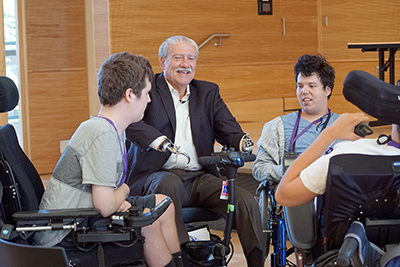
The University of Washington’s Accessible Technology Services (ATS), directed by Sheryl Burgstahler, promotes the success of people with disabilities using technology as an empowering tool to increase independence, productivity, and participation in education. ATS supports two centers: The Access Technology Center (ATC) and the Disabilities, Opportunities, Internetworking, and Technology (DO-IT) Center.
Access Technology Center
The ATC serves to ensure that UW students, faculty, and staff with disabilities have access to technology—including computers, software, and videos—that helps them accomplish their work. ATC staff help individuals select and use assistive technology and support a showroom with numerous products.
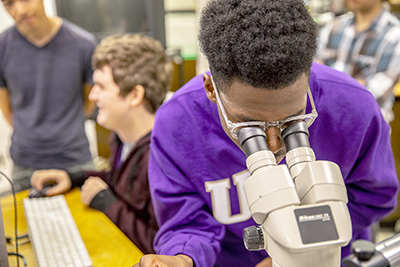
In 2018, ATC staff promoted the development, procurement, and use of accessible technology products by
- placing assistive technology in computing facilities;
- offering courses, delivering presentations, and conducting ATC tours for UW classes and other groups;
- working with campus units to prepare material in accessible electronic formats, and design accessible websites;
- offering a free captioning service for widely available and highly viewed videos; and
- supporting a central resource to provide guidance at the UW and beyond.
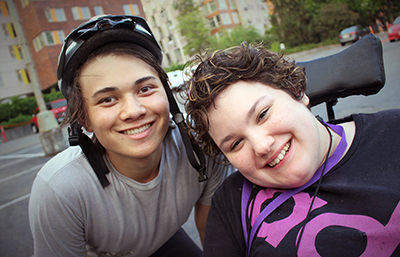
ATC staff also worked with vendors at the UW, ensuring that technology and software being purchased and used is accessible. They have worked with WorkDay, Microsoft, Panopto, Zoom, and many others in the past year.
Disabilities, Opportunities, Internetworking, and Technology
The DO-IT Center has continued to secure external funding to address accessibility issues statewide, nationally, and internationally. Working with UW and external partners, DO-IT supports activities that increase the success of people with disabilities in college and careers. It was founded in 1992 with a grant from the National Science Foundation.
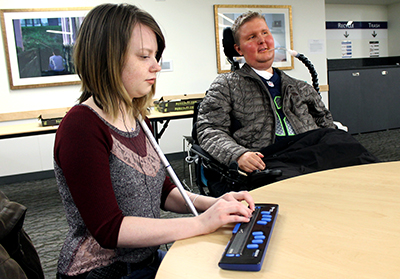
In 2018, hundreds of students attended DO-IT’s college-focused camps at the UW, engaged in mentoring, and secured challenging internships and careers. DO-IT’s longitudinal study continues to document the success of DO-IT’s efforts.
DO-IT worked with organizations in the United States and other countries to adapt evidence-based practices to
- promote the success of people with disabilities in college studies and careers,
- advance the development and use of technology for people with disabilities, and
- promote the universal design of instruction, physical spaces, technology, and services.
Access Technology Center
ATC Milestones
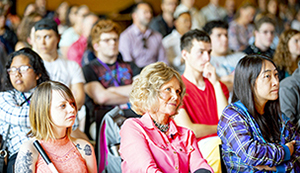
1665 Event Attendees
Staff, faculty, and students across all three UW campuses, as well as across Washington State, attended ATC events to learn about accessible technology and equal access to education and careers. Attendees included disability student service leaders and administrators, postsecondary IT professionals, and faculty.
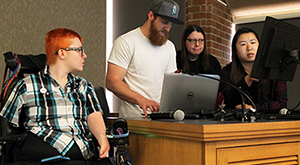
64 Events Hosted
The ATC offered multiple opportunities throughout the year to engage and learn more about accessible technology across University of Washington campuses. Events included 11 trainings, 16 workshops, 9 webinars, 12 presentations, 9 meetings, and 7 conferences. Topics included universal design, PDF remediation, accessible website and software development, and more.
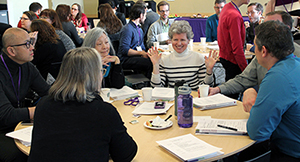
103 Liaisons Engaged
IT Accessibility Liaisons are people who represent their work unit, large or small, in a system-wide movement to promote the procurement, development, and use of IT that is accessible to everyone, including students, faculty, and staff with disabilities. IT Accessibility Liaisons communicate online and meet in-person three times per year, continue to learn about how IT can be made more accessible, collect information and spread the word about the UW’s IT Accessibility Policy.
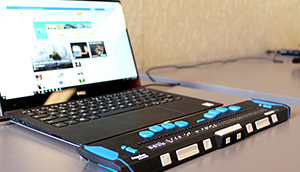
100 Products Showcased
At the ATC, in libraries, and in computer labs across campus, over 100 assistive technology devices and software applications are deployed for on-demand use, demonstration, and trial purposes. Assistive technology showcased includes speech and Braille output for those who are blind; screen magnification for people with low vision; alternatives to the keyboard and mouse; speech recognition software; tools to make reading, writing, and computer use easier; and the capability to create documents in e-text and braille.
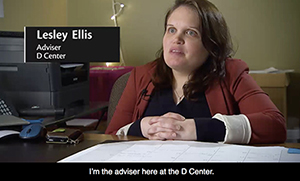
473 Videos Captioned
The ATC offers to freely caption UW videos that are highly-visible, high-impact, multiple use, and/or strategic. In 2018, the ATC captioned 473 videos—more than one video a day! Captioning helps people who are deaf or hard of hearing, as well as those who are learning English, watching in a noisy or quiet area, need to search through the content, and more. The ATC also offers resources and tools to teach others how to caption videos independently.
Collaborator Spotlights
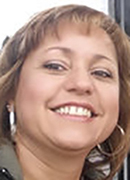
Ana Thompson, Office of Digital Learning & Innovation
Ana Thompson is a leader in accessibility on the UW Bothell campus and beyond. She leads the Universal Design for Active Learning campus initiative and is a member of the New Faculty Orientation, Accessibility Plan Project committees, the Campus Access Guide work-group, the UW-IT Accessibility Task Force, and the UW-IT Accessibility Liaisons. As a learning and access designer at the Office of Digital Learning & Innovation, Ana enjoys working with faculty members and staff to streamline the use of technology and promote digital fluency. Ana has extensive experience with learning management systems, adult learning, WCAG 2.0, document accessibility, copyright and fair use, and universal design for learning.
Carrie Doring, Cultivate Learning
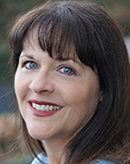
Carrie works on the Coaching Companion platform for Cultivate Learning. This platform is a learning environment used by early childhood development educators who want to grow their skills. Even before connecting with the ATC, Carrie took the initiative to look at web standards and ARIA to ensure the platform fully meets standards for accessibility—a feat no other developer has done! Carrie is open to new solutions and has queued up recommended changes in the development pipeline for accelerated release. Carrie is excited about joining the UW-IT Accessibility Liaisons team and continuing this important work.
ATC 2018 Highlights
| Three IT accessibility full-day capacity building institutes, one for UW and two for Washington State |
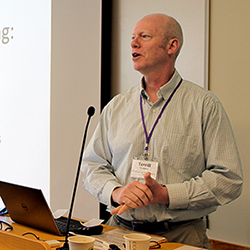
|
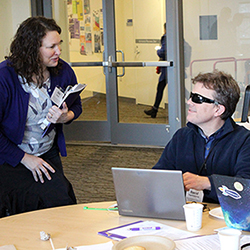
|
Three IT Accessibility Liaisons meetings |
|
Captioning Project |
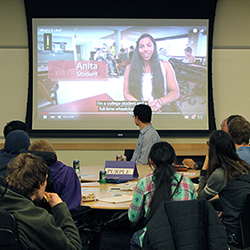
|
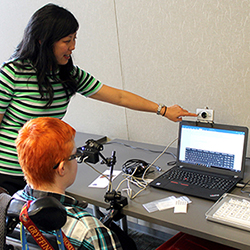
|
PDF and website accessibility trainings hosted across all campuses |
The DO-IT Center
DO-IT 2018 Milestones
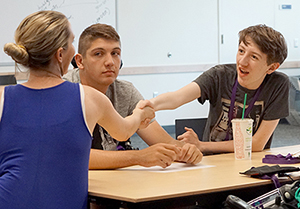
7 New Grants
DO-IT was awarded funding for seven new projects. The National Science Foundation funded four: A supplement to our existing AccessComputing project to include students with disabilities in computing instruction and research, AccessCyberlearning 2.0 to conduct exploratory research to inform future digital learning, and AccessINCLUDES and ERC-INCLUDES to prepare INCLUDES broadening participation projects to address disability in their research and product development. The DO-IT IDEAS project, funded by UW, develops and supports a cohort of students from all three UW campuses; a grant from the Port Gamble S’Klallam Tribe provides outreach in the North Kitsap area; and DO-IT ADEPT, funded by the United Engineering Foundation, will build a national network of engineering faculty and students to advance disability-related issues.
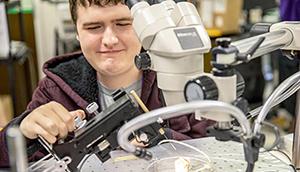
60+ Internships
DO-IT participants engaged in over 60 internships, with a majority being paid internships in STEM fields. Locations included Microsoft, Facebook, Amazon, Starbucks, Qualcomm, Bank of America, and a number of postsecondary institutions including the UW. Internships help students learn about career fields, practice requesting accommodations, apply academic learning to real-world environments, build their professional network, and access state-of-the-art equipment.
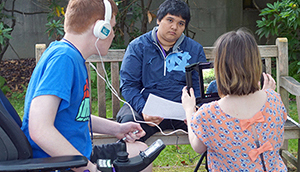
1000+ Participants
DO-IT serves over 1000 students with disabilities in our programs. Activities in 2018 included workshops, networking events, mentoring activities, disability advocacy events, and our signature Summer Study program for DO-IT Scholars. Students build resume and job seeking skills, learn how to be successful in college, gain access to assistive technology, and so much more.
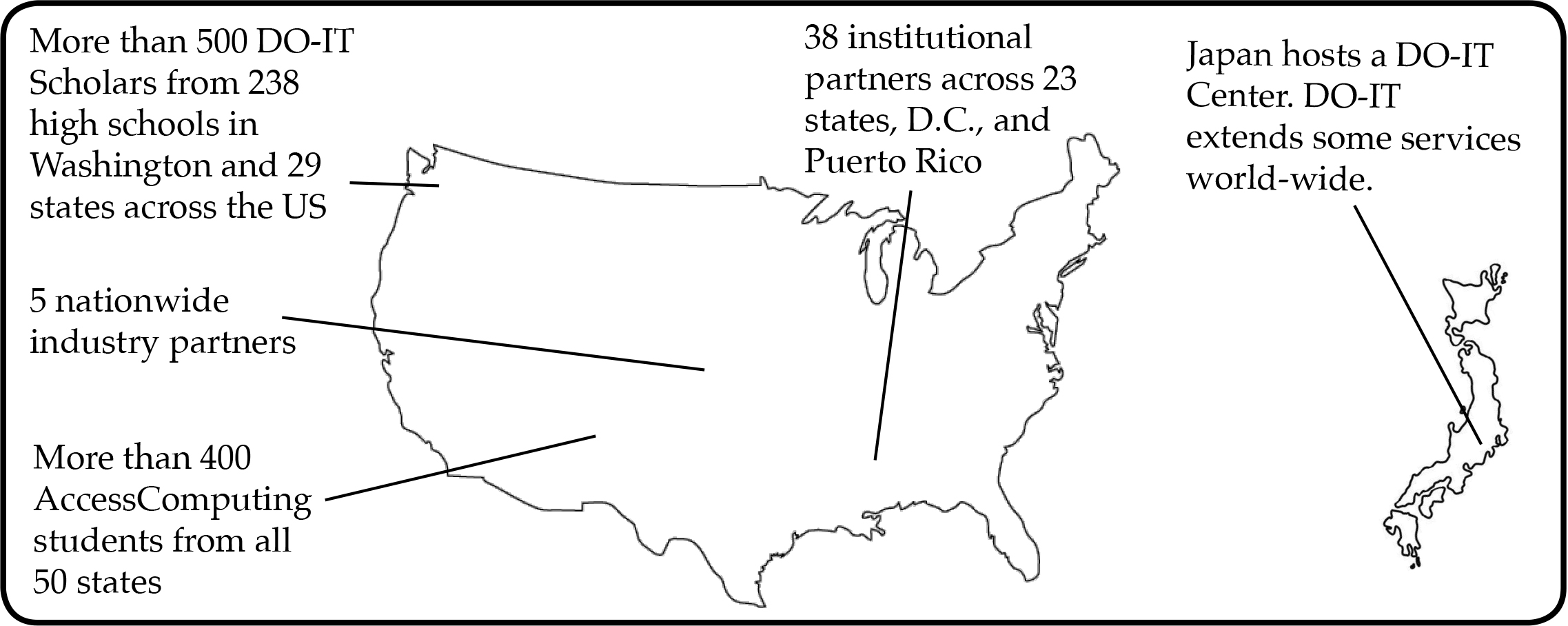
Participant Spotlights
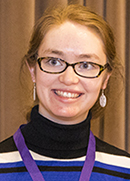
Hannah Werbel, University of Washington
Hannah joined the DO-IT Scholars program in high school. Hannah has received support from DO-IT throughout her college education. Hannah reports that it is encouraging to hear from people who have dealt with similar challenges in transition to college and schoolwork. She has also developed a strong professional network as well as many close friends through DO-IT. Hannah earned the freshman UW President’s Medal for 2015-2016 and the Boas Scholarship for Physics for 2017-2018. Hannah states “I am so grateful for all that DO-IT has done to support me throughout my college years.”
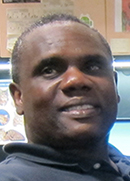
Vincent Martin, Georgia Institute of Technology
After realizing he was faced with a significant eye disease, Vincent began to use his technical and engineering skills to create, modify, and utilize assistive technology. Now Vincent is a PhD student in human-centered computing. For much of his post secondary education as a person with a disability, he was mostly unaware of others with disabilities pursuing similar goals. Vincent shares “DO-IT offered a level of camaraderie that is not apparent anywhere else. My stress related to the difficulties of unseen obstacles was mostly mitigated by the depth and breadth of knowledge shared amongst other DO-IT members.”
DO-IT 2018 Highlights
|
Hundreds |
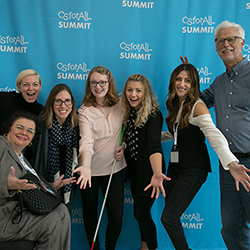
|
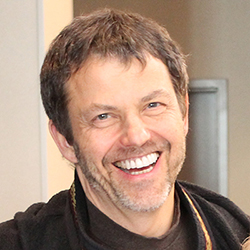
|
DO-IT partner Howard Kramer awarded with a Capacity Building Award |
|
Civil rights leader |
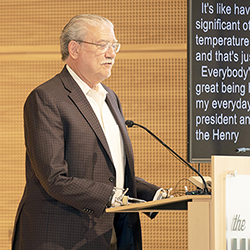
|
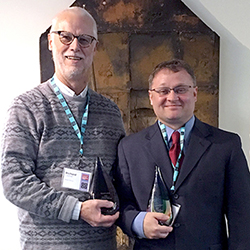
|
AccessCSforAll leaders Richard Ladner and Andreas Stefik win Champions of Change Computer Science Awards |
Funding, Impact, and Resources
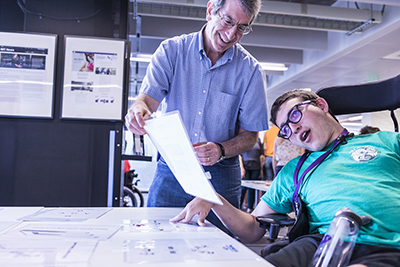
Funding
Accessible Technology Services is supported by various sources: University of Washington, National Science Foundation, Washington State, various foundations, and the support and sponsorship of donors. To learn more about our funding, visit us online.
Lasting Impact
ATS increases the participation of individuals with disabilities in academic and career fields through on-campus support and off-campus interventions for both people with disabilities and faculty, staff, and employers. ATS provides education, opportunities, and support for individuals with disabilities to reach their academic and career potentials.
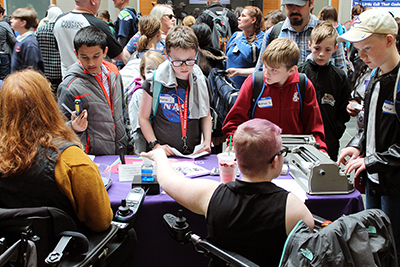
ATS’s impact continues long past the duration of each grant and budget; we facilitate lasting change and knowledge for individuals as well as create resources that can be used freely by all.
Support Us! Consult Us!
To support our continued work, visit our Support Page. Find resources online:
Disabilities, Opportunities, Internetworking, Technology